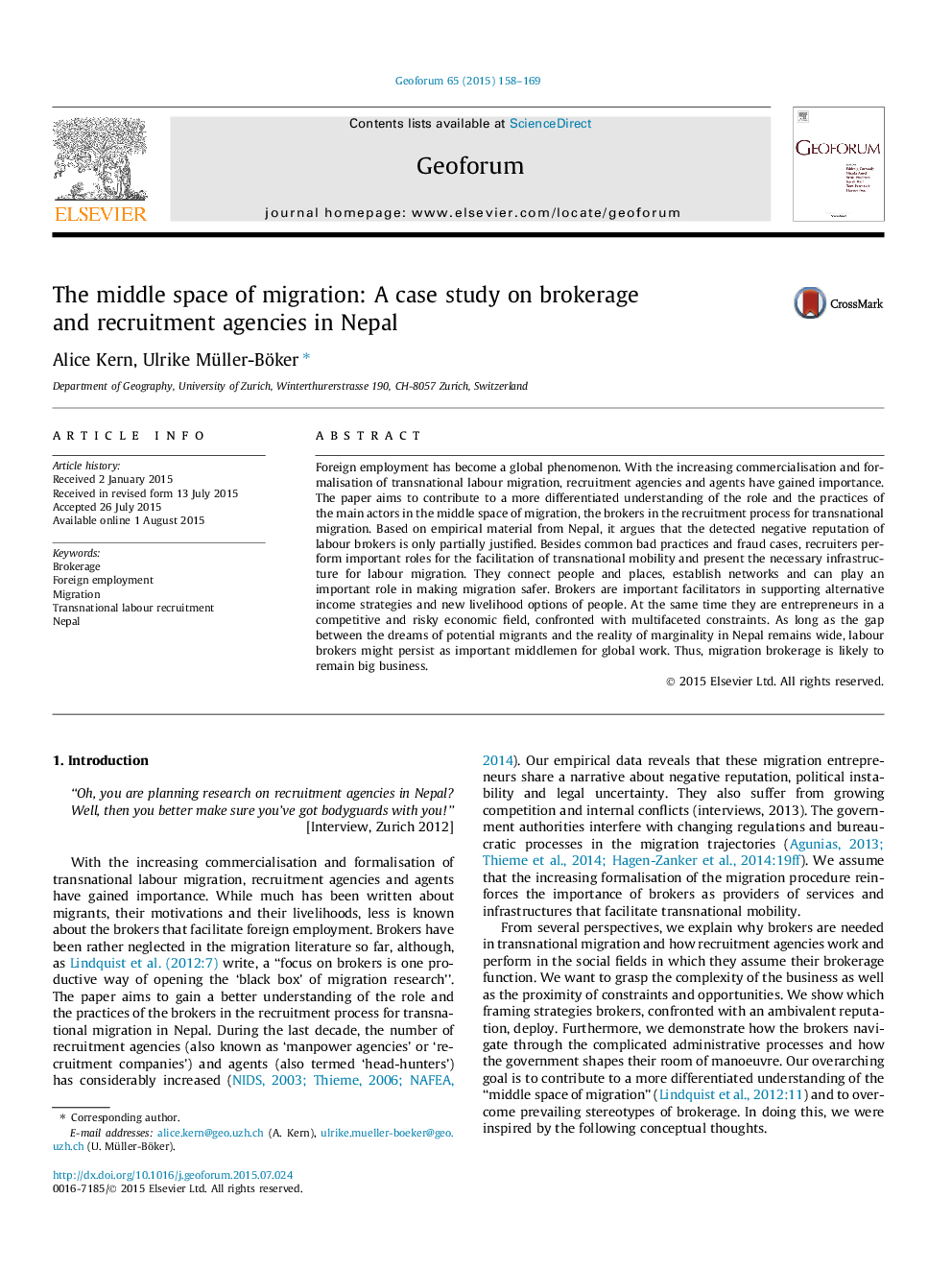| Article ID | Journal | Published Year | Pages | File Type |
|---|---|---|---|---|
| 5073801 | Geoforum | 2015 | 12 Pages |
â¢Bureaucracy, multi-locality and political uncertainty render the need for brokers.â¢The middle space of recruitment features actors with conflicting interests and complex interrelations.â¢The stereotype of the “bad broker” does not reflect the variety of practices and the constraints that brokers face.â¢Brokers highlight their contribution in securing livelihoods and fostering development.
Foreign employment has become a global phenomenon. With the increasing commercialisation and formalisation of transnational labour migration, recruitment agencies and agents have gained importance. The paper aims to contribute to a more differentiated understanding of the role and the practices of the main actors in the middle space of migration, the brokers in the recruitment process for transnational migration. Based on empirical material from Nepal, it argues that the detected negative reputation of labour brokers is only partially justified. Besides common bad practices and fraud cases, recruiters perform important roles for the facilitation of transnational mobility and present the necessary infrastructure for labour migration. They connect people and places, establish networks and can play an important role in making migration safer. Brokers are important facilitators in supporting alternative income strategies and new livelihood options of people. At the same time they are entrepreneurs in a competitive and risky economic field, confronted with multifaceted constraints. As long as the gap between the dreams of potential migrants and the reality of marginality in Nepal remains wide, labour brokers might persist as important middlemen for global work. Thus, migration brokerage is likely to remain big business.
